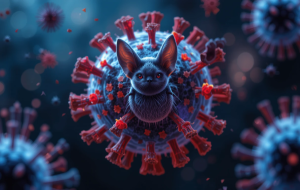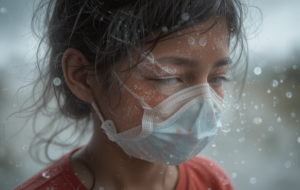Malaria Vaccination Produces Positive Results: A Hopeful Step for Global Health

Our health news section provides you with the latest information on a wide range of health topics, from breaking news to in-depth analysis. We cover everything from the latest medical research to lifestyle tips for staying healthy. Our goal is to help you make informed decisions about your health and well-being
Malaria is a preventable and treatable disease, but it remains a major public health problem, particularly in Africa. In 2020, there were an estimated 241 million cases of malaria worldwide, resulting in 627,000 deaths. The vast majority of cases and deaths occur in children under the age of five.
Despite the availability of effective preventive measures, such as insecticide-treated bed nets and malaria drugs, malaria continues to be a major burden on individuals and communities. This is due to a number of factors, including poverty, lack of access to healthcare, and the increasing resistance of malaria parasites to drugs.
However, there is new hope in the fight against malaria with the development of effective vaccines. In October 2023, the World Health Organization (WHO) recommended the use of the R21/Matrix-M vaccine for malaria prevention in children living in malaria-endemic areas. This is the first malaria vaccine to receive a global recommendation from the WHO.
The R21/Matrix-M vaccine has been shown to be highly effective in preventing malaria in clinical trials. In a Phase 3 trial involving over 15,000 children in Africa, the vaccine reduced the risk of clinical malaria by 75% and severe malaria by 77%. The vaccine was also shown to be safe and well-tolerated.
The WHO’s recommendation of the R21/Matrix-M vaccine is a major milestone in the fight against malaria. It is the culmination of decades of research and development, and it has the potential to save millions of lives.
The vaccine is currently being rolled out in pilot programs in several African countries, and it is expected to be more widely available in the coming years. The introduction of the R21/Matrix-M vaccine is a hopeful step for global health, and it could play a major role in reducing the burden of malaria worldwide.
What this means for Americans
The development of a malaria vaccine is good news for everyone, but it is especially important for Americans who travel to or work in malaria-endemic areas. Malaria is a serious disease that can be fatal, and it is important to take all possible precautions to prevent infection.
While the R21/Matrix-M vaccine is not yet widely available, it is expected to be more accessible in the coming years. Americans who are planning to travel to or work in a malaria-endemic area should talk to their doctor about getting vaccinated against malaria.
In addition to getting vaccinated, Americans can also protect themselves from malaria by taking other precautions, such as:
- Using insecticide-treated bed nets every night
- Wearing long sleeves and pants, especially at dusk and dawn
- Using insect repellent
- Taking malaria medication, if prescribed by a doctor
By taking these precautions, Americans can help to protect themselves from malaria and reduce the risk of spreading the disease to others.






